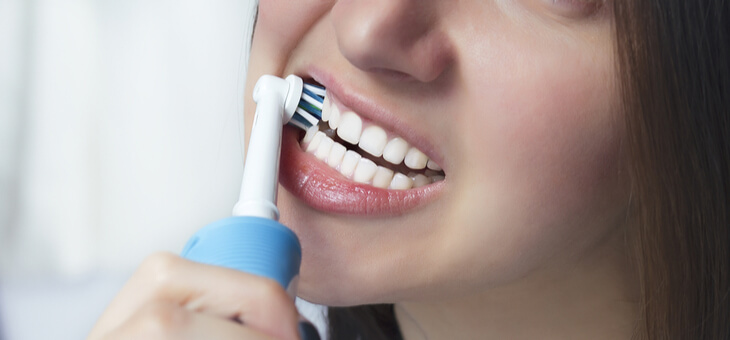I’m sure you’ve heard the claims that electric toothbrushes give a superior clean to their manual counterparts. However, a new study finds there is insufficient evidence to support these common beliefs. They might be true, but the systemic studies haven’t been done to show proof.
The paper released by the University at Buffalo examines “the effectiveness of various oral hygiene devices” to find what works best and what hasn’t been proven to work at all.
Overall, the paper concludes: “Only a handful of self-administered interventions provide additional protection against gingivitis and periodontitis beyond brushing one’s teeth with a basic toothbrush. Manual tooth brushing and powered tooth brushing were found to be equivalent.”
Reading the findings on brushing probably won’t influence your decision on which toothbrush to use, but the paper has some other interesting advice.
While there’s little evidence that using dental floss reduces plaque and gingivitis, the researchers don’t want you to stop. They recognise flossing as the backbone of interdental cleaning.
Read: This is how often you should replace your toothbrush
“While there are few studies available that specifically examined toothbrushes or floss alone, both are still essential,” said principal investigator and chair Dr Frank Scannapieco, professor of oral biology at Buffalo’s School of Dental Medicine.
“Floss is especially useful to remove interdental plaque for people who have tight space between their teeth. Floss also likely reduces the risk for cavities that form between the teeth.”
The investigators found insufficient evidence that mouthwashes based on tea tree oil, green tea, anti-inflammatory agents, hydrogen peroxide, sodium benzoate, stannous fluoride, hexetidine or delmopinol reduced gingivitis.
Another, perhaps controversial, conclusion is insufficient evidence that professional plaque removal – known as scaling, the process of removing plaque with a scraper – prevents gum disease.
So, if electric-powered toothbrushes are no more effective at reducing plaque and gingivitis than a basic toothbrush, what are their advantages?
Advantages of electric toothbrushes
Easier for people with limited mobility
An electric toothbrush will do most of the work for you. They may be helpful for people with limited mobility. Just be sure to choose one that’s not too heavy.
Built-in timer
One feature to consider when it comes to an electric toothbrush is a built-in timer. Many people don’t brush for the full recommended two minutes so a timer may encourage you to brush for longer.
Some models have a quadrant timer that buzzes every 30 seconds to remind you to move on to another area of your mouth.
Read: Five myths and facts about keeping your teeth healthy
May cause less waste
If you have a multiple-use electric toothbrush, you only have to replace the toothbrush head rather than the whole thing.
You may be more focused when brushing
A 2015 study found that people were more focused when brushing their teeth using an electric toothbrush, potentially resulting in a more comprehensive clean.
Disadvantages of electric toothbrushes
Expense
Electric toothbrushes are more expensive than manual ones. You can pick up a basic toothbrush for a few dollars, where a premium electric one can set you back up to $250.
Finding replacement heads
Finding the right replacement brush heads may not always be easy or convenient, and your local stores may not stock the correct brand or type. You can often find them online but it’s not a great option if you need one right away.
They can be very powerful
A 2017 study published in the journal PLOS One found that electric toothbrushes were more likely than manual to abrade dentin, which can increase tooth sensitivity and heighten cavity risks.
Dentin is the tissue directly below the tooth’s enamel and becomes exposed when the enamel wears away or gums recede.
Although experts say that brushing too forcefully with any kind of toothbrush may increase the likelihood of gum recession and damaged tooth enamel.
Read: Could you be damaging your tooth enamel without even knowing it?
What to look for in a toothbrush
Angled bristles
Both electric and manual toothbrushes come in a variety of head sizes and bristle configurations, including bristles that are clustered, angled, or rippled in various ways.
Some studies have shown that tapered or angled bristles are slightly more effective at reducing plaque than flat brushes.
Pressure sensor
An electric toothbrush with a pressure sensor may be beneficial for people who tend to brush too aggressively. Some models sense if you’re pushing too hard and respond by stopping the bristles from moving until you lighten your touch.
Softer bristles
Whether you opt for a manual or an electric toothbrush, choose one with soft bristles as hard ones are more likely to cause damage to gums and enamel.
Do you use an electric or manual toothbrush? Are there any other advantages you would add to the list? Share your thoughts in the comments section below.
If you enjoy our content, don’t keep it to yourself. Share our free eNews with your friends and encourage them to sign up.

